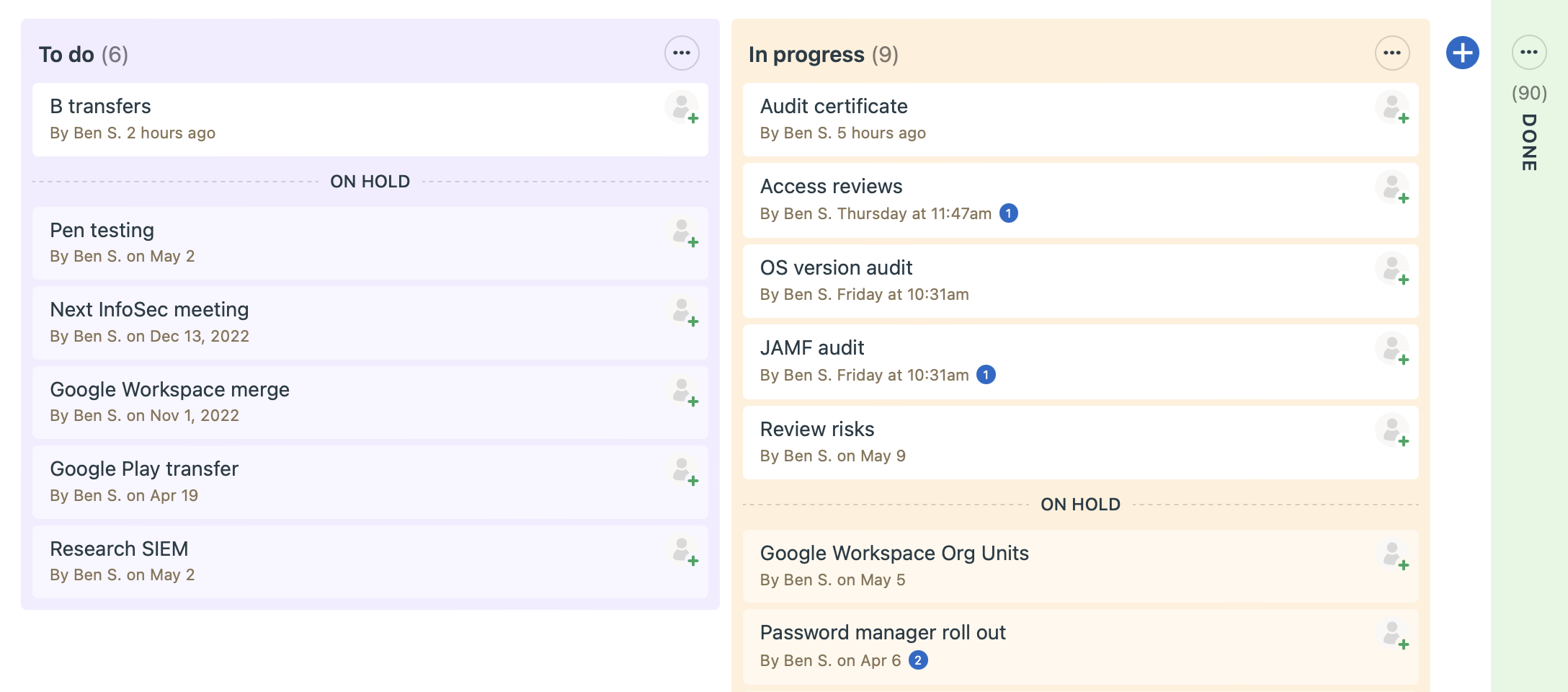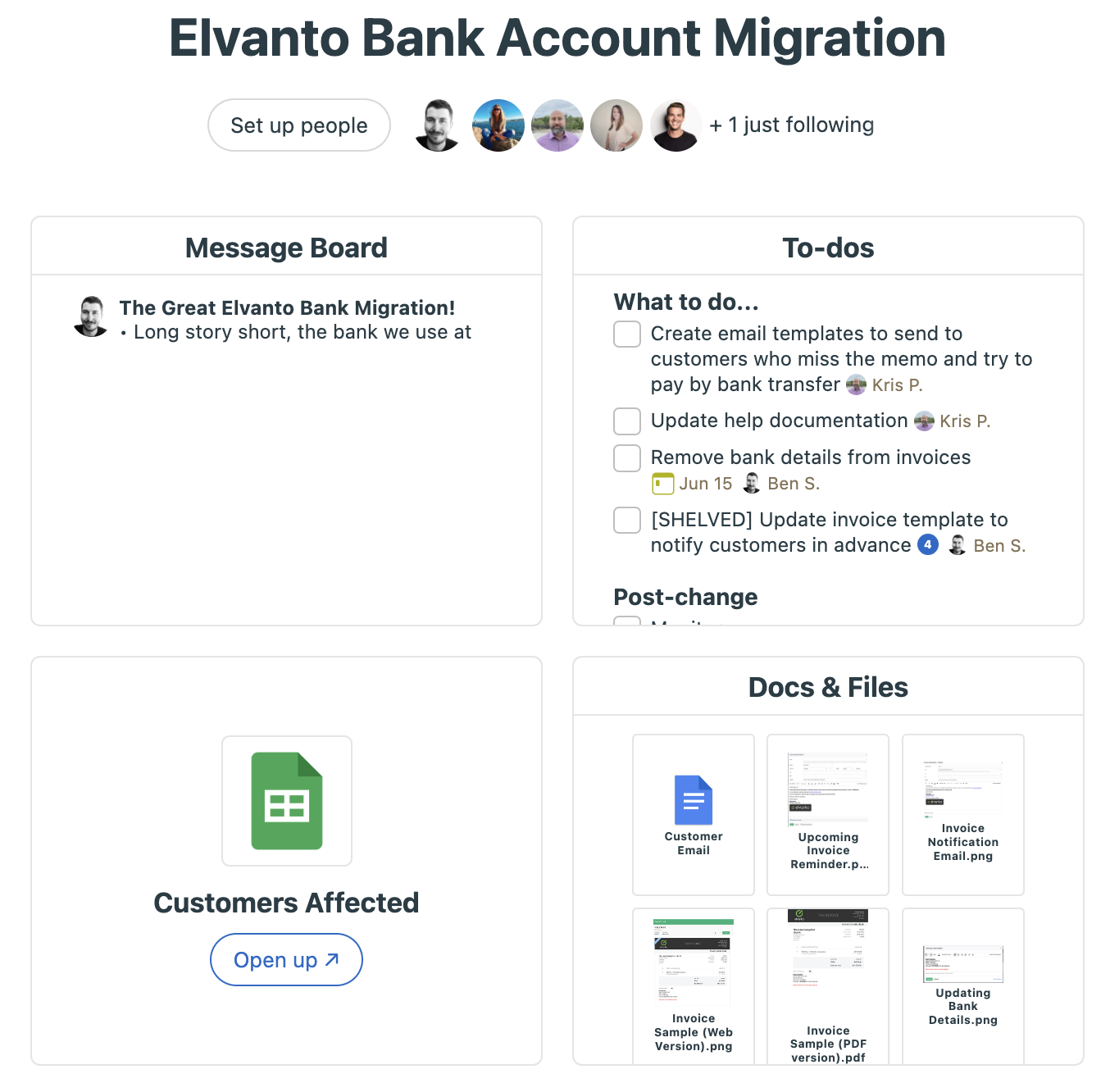Handling an overwhelming amount of tasks, especially those that are long-running, is a skill that needs to be learned and often only requires a small amount of structure and process to manage.
I've experienced frustration working with colleagues who simply do not have the structure and process in place to handle the pace of tasks in relation to their role. When you ask them a question or require their headspace on something important, they either say they will look into it (and never do) or simply don't reply. This results in follow-ups, missed deadlines and frustration.
My goal for this post is to outline some practical strategies that have helped me manage overwhelming amounts of tasks while still keeping track of the high-priority items, being communicative with stakeholders, and switching off when I finish work for the day. I'll give some examples in tools I use but please know these concepts can be translated into other similar tools.
Preface
Currently, at my company, we use the following tools to communicate:
I've experienced frustration working with colleagues who simply do not have the structure and process in place to handle the pace of tasks in relation to their role. When you ask them a question or require their headspace on something important, they either say they will look into it (and never do) or simply don't reply. This results in follow-ups, missed deadlines and frustration.
My goal for this post is to outline some practical strategies that have helped me manage overwhelming amounts of tasks while still keeping track of the high-priority items, being communicative with stakeholders, and switching off when I finish work for the day. I'll give some examples in tools I use but please know these concepts can be translated into other similar tools.
Preface
Currently, at my company, we use the following tools to communicate:
Tasks come from all of the above sources. People send me a message on Slack, or an email or mention something on a Zoom call. All of these sources of communication need to be fed into my structure and process of handling tasks to be able to keep on top of it.
My structure
For the last few months, I've switched to a kanban-style task list instead of a top-to-bottom list, which helps me keep track of the status of the items I'm working on. I have a 'To do' column, one for 'In progress,' and a third for 'Done.'
I have this setup in a personal project inside of Basecamp. Here's an example. Basecamp can add an 'On hold' section in each column which I've found helpful.

I'm constantly reviewing my task list many times a day. It helps me focus on what's important and stops me from forgetting to do something.
If my task list gets super long, I might decide at the start of the day on the top 4-6 things I need to tackle that day.
My process
As tasks are communicated through various channels, I throw them in the 'To do' column whenever I cannot deal with them immediately.
I'll add a high-level title for the task, and within the description, I'll add context, links to Slack or email conversations, and whatever I'd need to be able to pick up the task.
Once a task is added, I can forget about it and pick it up again when ready without much effort.
Big projects
Sometimes I have to do something far more than just a simple task. Maybe there's an extensive list of things to do, maybe it'll be a long-running project, or even have other people involved.
This is when I go to the next level and create a project around a task in Basecamp. Here I can use different tools to communicate with those involved, store documents, link to 3rd party apps, and create an extensive to-do list. I can then link to this project from my task to easily access it.
Here is a project that involved several people over multiple months that I was managing. I know everything I need around this project will be within this Basecamp project.

Being ok stopping and starting
When I started working at the web design firm my dad and I started, I struggled to switch contexts. In my mind, I had to finish one project before I moved to the other. Rather than multiple projects moving forward, it was one at a time. This was not sustainable, and I soon had to learn to be ok stopping one project and moving to another.
Having my to-do list allows me to write a note about where I'm at with the task. That way, when I revisit a project at another time, I know exactly where I was up to.
Switching off for the day
The final thought is around switching off. By having a task list and recording notes on the progress, you can far more easily turn off the part of your brain trying to remember what you're working on and what needs to be done. Next time you log in, you can catch up easily.
-Ben